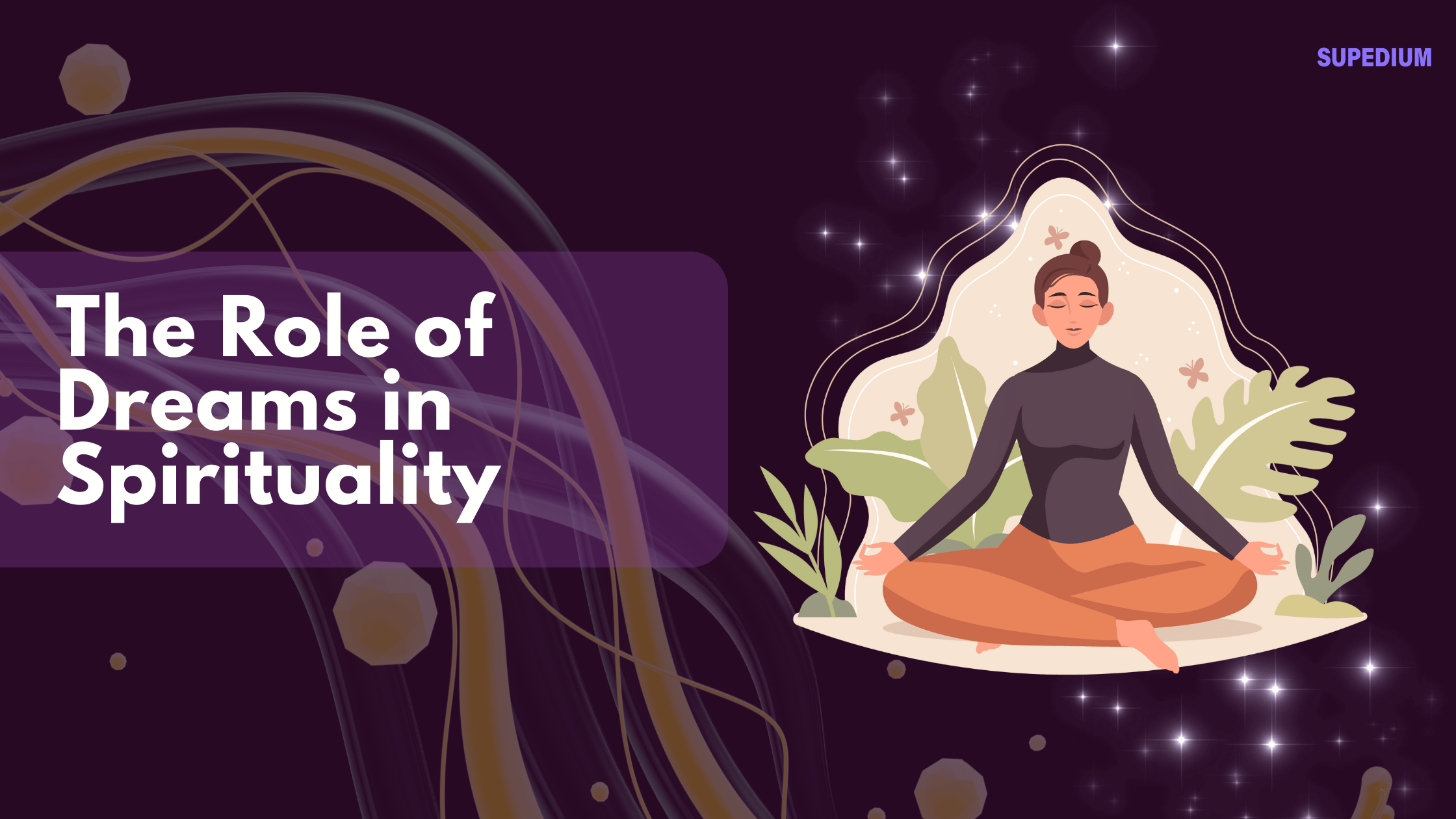Table of Contents
![]()
I. Introduction
Dreams have long fascinated humanity, serving as a bridge between the conscious mind and the realms of the subconscious. Spirituality, often defined as a search for meaning, connection, and transcendence, intersects intriguingly with the world of dreams. This article explores the multifaceted role of dreams within spiritual contexts, highlighting historical perspectives, psychological insights, cultural variations, practical applications, and critiques.
II. Historical Context
A. Dreams in Ancient Cultures
Throughout history, various cultures have held dreams in high esteem, often viewing them as messages from the divine. In ancient Mesopotamia and Egypt, dreams were interpreted as omens or warnings, and specialized dream interpreters played crucial roles in society. Similarly, indigenous cultures often employed shamanic practices, using dreams as tools for healing, guidance, and connection to the spirit world.
B. Religious Texts and Dreams
Dreams also feature prominently in religious texts. In the Bible, figures like Joseph and Daniel received divine revelations through dreams, which guided their actions and influenced the lives of many. Hindu scriptures also discuss dreams as pathways to higher consciousness, while Islamic teachings emphasize the significance of dreams, with the Prophet Muhammad having experienced several pivotal dreams that shaped his teachings.
C. Philosophical Views on Dreams
Philosophically, dreams have been a subject of contemplation. Plato suggested that dreams reflect the soul’s journey, while Aristotle viewed them as a mixture of reality and imagination. These perspectives laid the groundwork for understanding dreams not just as fleeting thoughts but as significant experiences that can inform spiritual understanding.
III. The Psychological Perspective
A. Carl Jung and the Collective Unconscious
Psychologist Carl Jung introduced the concept of the collective unconscious, arguing that dreams tap into shared symbols and archetypes. He believed that dreams could facilitate the individuation process—an integration of the self that aligns with one’s spiritual journey. Jung saw dreams as a canvas where personal and universal themes intersect, providing insights into the dreamer’s spiritual path.
B. Sigmund Freud and Dream Analysis
Freud’s theories also contributed to the understanding of dreams, positing that they are manifestations of repressed desires and thoughts. For him, dreams serve as windows to the unconscious, where spiritual beliefs and personal conflicts may be intertwined. The symbolism in dreams, according to Freud, can reveal deeper spiritual and psychological truths.
C. Modern Psychological Interpretations
In contemporary psychology, dreams are viewed as reflections of personal beliefs and values. They can also aid in self-discovery, helping individuals navigate spiritual dilemmas or affirm their beliefs. Techniques such as lucid dreaming have gained popularity, allowing individuals to consciously engage with their dreams and explore spiritual themes.
IV. The Spiritual Significance of Dreams
A. Dreams as a Means of Communication with the Divine
Many spiritual traditions regard dreams as direct channels of communication with the divine. Prophetic dreams can offer insights and guidance, while other dreams may provide reassurance during times of uncertainty. Individuals often report experiencing profound spiritual revelations during dreams, leading to transformative life changes.
B. Dreams as a Reflection of Spiritual Growth
Dreams can also signify spiritual growth. Transformational experiences in dreams, whether positive or negative, can encourage introspection and personal development. Nightmares, for instance, might reflect unresolved fears or challenges that the dreamer must confront to evolve spiritually.
C. Dreams in Meditation and Mindfulness
Incorporating dreams into meditation practices can enhance spiritual growth. Techniques such as keeping a dream journal or engaging in meditation before sleep can facilitate dream recall and interpretation. By reflecting on dreams, individuals can integrate insights into their spiritual practices, fostering deeper self-awareness and connection.
V. Cultural Variations
A. Indigenous Beliefs and Dreamcatchers
Indigenous cultures often view dreams as sacred experiences. Dreamcatchers, for instance, are believed to filter out negative dreams while allowing positive ones to pass through. This practice highlights the cultural significance placed on dreams as sources of guidance and protection.
B. Eastern Philosophies
In Eastern philosophies, such as Buddhism and Taoism, dreams are often seen as reflections of one’s mind and consciousness. They are viewed not only as experiences to analyze but also as opportunities for understanding the nature of reality and the self.
C. Contemporary Spiritual Movements
In recent years, contemporary spiritual movements have embraced dream interpretation, viewing it as a valuable tool for personal and spiritual development. Workshops, online courses, and books on dream analysis have proliferated, emphasizing the relevance of dreams in modern spirituality.
D. Cross-Cultural Comparisons
Cross-cultural comparisons reveal diverse interpretations of dreams. While some cultures emphasize prophetic elements, others may focus on the psychological implications of dreams. Understanding these variations enriches our appreciation of dreams within spiritual contexts.
VI. Practical Applications
A. Techniques for Enhancing Dream Recall
To deepen the spiritual significance of dreams, individuals can employ various techniques. Keeping a dream journal is a common practice that aids in recalling and analyzing dreams. Additionally, meditative practices before sleep can enhance the quality and vividness of dreams, making them easier to remember.
B. Interpretation Methods
Interpreting dreams can involve different methods, including symbolic analysis and consulting spiritual mentors. Engaging with dream symbols can reveal personal insights, while guidance from experienced interpreters can offer fresh perspectives on spiritual themes.
C. Integrating Dreams into Daily Life
Dreams can inform decision-making and inspire creativity. Many artists and writers have drawn from their dreams to create profound works of art, illustrating the connection between dreams and creative expression.
VII. Critiques and Challenges
A. Skepticism About Dream Interpretation
Despite their significance, dreams are often met with skepticism, particularly from scientific communities. Critics argue that dreams may not hold inherent meaning but rather reflect neural processes during sleep. This skepticism calls for a balanced view that acknowledges both the psychological and spiritual aspects of dreams.
B. The Potential for Misinterpretation
Misinterpretation of dreams can arise from cultural biases and subjective interpretations. Overemphasis on dreams in spiritual practices may lead to confusion or reliance on dreams for decisions, highlighting the need for discernment in interpreting their significance.
VIII. Conclusion
The role of dreams in spirituality is complex and multifaceted, encompassing historical, psychological, cultural, and practical dimensions. While skepticism exists, the personal experiences of countless individuals affirm that dreams can offer valuable insights into the spiritual journey. As we continue to explore the interplay between dreams and spirituality, we may find deeper connections to ourselves and the universe around us.
Share This





Be the first to comment